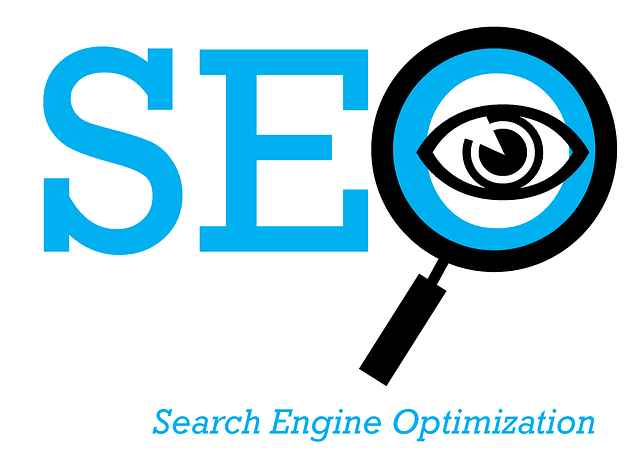On-Page SEO is vital for digital marketing success, as it optimizes individual web pages to enhance user experience and signal search engines' focus on valuable content. This strategy leads to increased organic traffic, longer browsing times, lower bounce rates, and improved engagement, strengthening online presence over time. Effective on-page SEO involves balancing optimization with human engagement through relevant keywords, logical content structure, and high-quality insights. Key techniques include HTML markup optimization, schema optimization for structured data, fast loading times, mobile responsiveness, internal linking for better UX and search engine indexing, and regular analysis using tools like Google Search Console to inform content optimization decisions. SEO Online Training is essential for mastering these strategies and staying competitive in the digital landscape.
On-Page SEO is a fundamental aspect of digital marketing, acting as the cornerstone for boosting online visibility. In this comprehensive guide, we’ll explore essential strategies for optimizing your website’s content and structure, ensuring search engines recognize its value. From keyword research to HTML markup, each section provides actionable insights for enhancing your SEO skills. Discover how crafting compelling content, optimizing meta tags, and improving user experience can significantly impact your search engine rankings. Take control of your online presence with our expert-led SEO online training.
Understanding On-Page SEO: The Cornerstone of Digital Visibility

On-Page SEO is a fundamental aspect of digital marketing that involves optimizing individual web pages to rank higher in search engine results pages (SERPs). It’s a cornerstone for boosting online visibility and driving organic traffic, making it an essential part of any SEO Online Training curriculum. By focusing on elements like relevant keywords, compelling content, and technical optimizations, websites can provide a better user experience, which search engines prioritize.
This strategy ensures that each page has clear and concise information about its topic, encouraging search engines to understand the context and relevance of the content. Well-optimized pages not only attract more visitors but also foster longer browsing sessions, lower bounce rates, and improved engagement metrics—all signals that contribute to stronger online presence and better rankings over time.
Keyword Research: Unlocking the Power of Relevant Terms

Keyword research is a fundamental step in any successful SEO strategy, and it’s a powerful tool for online visibility. By delving into relevant keywords, businesses can unlock the potential to attract their target audience and boost their search engine rankings. This process involves identifying terms that users frequently search for when looking for products, services, or information related to your niche. With the right SEO online training, individuals can learn to navigate tools like Google Keyword Planner or SEMrush to discover a wealth of keyword data.
Relevant keywords are those that closely align with the content you intend to create and the queries your potential customers are using. For instance, if you own an e-commerce site selling organic beauty products, searching for terms like “natural skincare” or “organic makeup” can yield valuable insights. These keywords not only reflect your product offerings but also indicate user intent, ensuring that your website provides the information or products searched for. Effective keyword research enables content creators to optimize their web pages, titles, and meta descriptions to better match search engine algorithms, thereby improving click-through rates and overall online performance.
Optimizing Title Tags and Meta Descriptions for Maximum Impact

Crafting Compelling Content That Search Engines Love

Creating content that resonates with both search engines and human readers is a key component of effective on-page SEO strategies. When crafting content, it’s essential to strike a balance between informative, engaging, and optimized text. Search engines, led by algorithms, analyze content based on relevance, keyword usage, and user experience signals. Therefore, incorporating relevant keywords naturally into your writing, ensuring a clear and logical structure, and providing valuable insights are crucial steps in the SEO online training process.
Compelling content goes beyond mere keyword stuffing. It involves understanding your target audience’s needs and preferences. By addressing common questions, offering unique perspectives, and presenting data or stories that captivate readers, you can significantly improve both engagement and search rankings. Remember, high-quality, relevant content not only satisfies search engine requirements but also fosters user loyalty, encouraging visitors to return and share your online resources.
HTML Markup and Schema Optimization Techniques

In the realm of On-Page SEO, HTML Markup and Schema Optimization Techniques are indispensable tools for any digital marketer or website owner aiming to enhance their online presence. HTML, the backbone of web pages, is not just about aesthetics; it’s a powerful language that search engines use to understand content. Optimizing HTML markup involves structuring content in a way that’s both reader-friendly and search engine-friendly. This includes using relevant headers, meta tags, and alt text for images, ensuring proper formatting, and incorporating keywords naturally without resorting to spammy practices.
Schema optimization takes this a step further by providing structured data that helps search engines interpret the context of your content more accurately. By adding Schema markup, you essentially give search engine crawlers a clearer picture of what your website is about, leading to better indexing and potentially improved rankings. This technique is particularly beneficial for complex information like reviews, events, products, or recipes, making it an essential part of any SEO Online Training curriculum.
Enhancing User Experience: Speed, Mobile Responsiveness, and Site Structure

In today’s digital era, enhancing user experience is paramount for successful on-page SEO strategies. One of the key aspects that significantly impacts UX and SEO is website speed. Fast-loading pages not only keep visitors engaged but also signal to search engines that your site is reliable and worth ranking higher. This is particularly crucial given that users increasingly access content on mobile devices, where slow sites can lead to high bounce rates and negative search engine optimizations.
Mobile responsiveness and a well-structured site are other critical elements. A responsive design ensures your website adapts seamlessly to different screen sizes and types, providing an optimal viewing experience for all users. Additionally, a logical site structure with clear navigation helps visitors quickly find what they’re looking for, reducing bounce rates and encouraging longer sessions—all of which are positive indicators for online SEO training and overall search engine rankings.
Leveraging Internal Linking Strategies for Better Indexing

Internal linking is a powerful strategy that can significantly enhance your website’s on-page SEO. By connecting relevant pages within your site, you’re essentially guiding search engines and users through your content, allowing them to discover related information easily. This technique also improves indexing as search engine crawlers can efficiently navigate and understand the structure of your site.
When implementing internal linking strategies, ensure that anchor texts are descriptive and keyword-rich. This means using keywords from the target page in the link text, making it clear to search engines what the link is about. For instance, if you have an article about “SEO Online Training,” use anchors like “learn SEO online” or “comprehensive SEO training.” This practice helps search engines rank your pages higher for relevant queries and increases the visibility of your website’s valuable content.
Analyzing and Interpreting On-Page SEO Performance

Analyzing and interpreting on-page SEO performance is a crucial step in understanding what tactics are working for your website. By utilizing tools provided by search engines like Google Search Console, you can gain insights into how users interact with your content. Metrics such as click-through rates (CTRs), average session duration, bounce rates, and pages per session offer valuable data on user engagement. These metrics help identify high-performing and underperforming pages, allowing for informed decisions about content optimization.
Effective on-page SEO strategies involve regularly reviewing and adjusting content to align with current search engine algorithms. This includes optimizing meta titles and descriptions, ensuring keyword relevance, enhancing headings (H1, H2, etc.), and improving overall readability. Engaging in continuous analysis and interpretation facilitates a dynamic approach to SEO online training, keeping your website relevant and competitive in the digital landscape.
